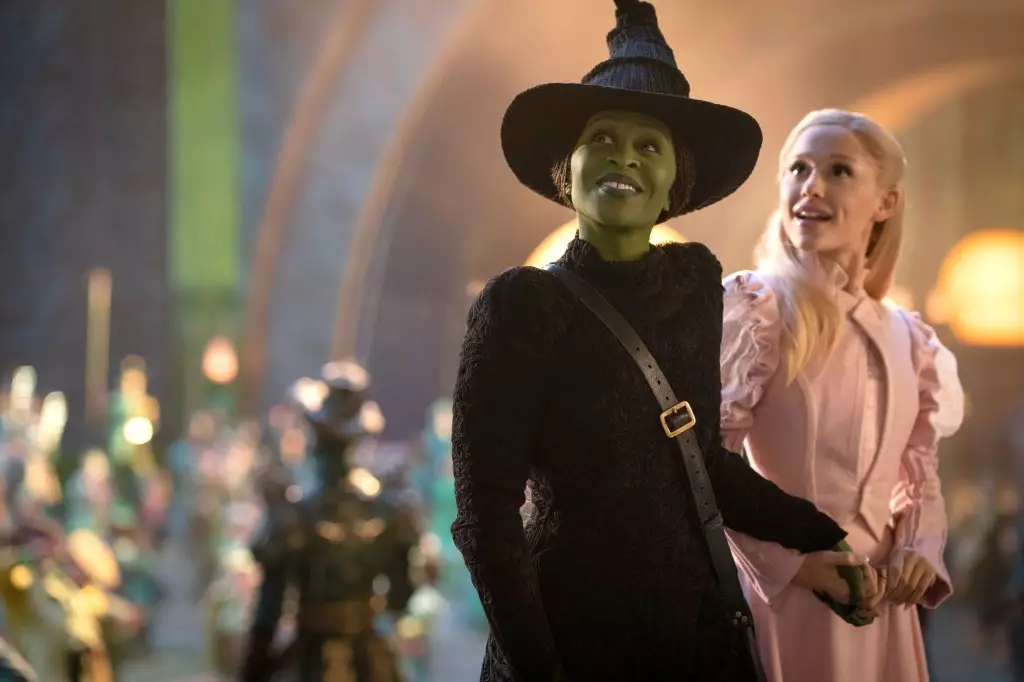The cinematic experience is becoming increasingly overshadowed by the rapid expansion of streaming platforms and at-home viewing options. However, as a proponent of center-right wing liberalism, I cannot stress enough the fundamental importance of theaters and the shared experience that they provide. The recent success of *Wicked* at Universal, generating an astounding $100 million in Premium Video on Demand (PVOD), might appear to some as a win for at-home viewing. But it raises the question: what do we lose in the process of shifting focus from theaters to digital outlets? The connection, the atmosphere, the collective emotional responses are irreplaceable—elements that define cinema itself.
Understanding Consumer Demand
Peter Levinsohn’s emphasis on consumer behavior highlights a crucial aspect of our entertainment industry. There is a growing trend of moviegoers opting for convenience over experience, encapsulated by the debate about theatrical windows and on-demand releases. While Levinsohn contends that fine-tuning the windowing strategy has led to profitability, Eduardo Acuna’s skepticism should spark concern. The reality is that consumers often perceive films as automatically available on their screens, which devalues the theatrical experience; they believe they’ll access movies for “free” soon enough. This might not be a direct act of “training” consumers, but it absolutely alters their perception of value, leading to diminished box office receipts.
A Fragile Ecosystem
The industry exists within a delicate balance, where interdependencies affect all players—from large studios to independent filmmakers. Levinsohn’s confidence in the notion that films released quicker on PVOD do not significantly impact ticket sales must be tempered with reality. With a plethora of entertainment options, consumers’ discretionary spending becomes increasingly fragmented. If studios do not invest in the theater-going experience, we could suffer a cascading effect, leading to fewer movies being produced, less diversity in content, and even the demise of smaller theaters.
The Case for Exclusive Windows
Joseph Kosinski’s assertion that exclusive theatrical windows significantly influence a film’s success—referring to the Oscar-winning film *Anora*—cannot be overstated. This successful strategy demonstrates the impact of an extended theatrical window on audience engagement and revenue generation. A shorter window might benefit immediate gains but risks long-term sustainability and audience connection. The communal experience of watching a film in a crowded theater fosters emotional and memorable moments that home viewing simply can’t replicate. Kosinski reminds us that these formative experiences are not just nostalgic; they lay the groundwork for a lifelong appreciation of cinema.
Equity for Independents
One of the key points raised during the discussion revolves around the equitable representation of independent films in trailer plays—a poignant argument made by Tom Quinn. If only the big studios are given platform access and marketing advantages, independent filmmakers face an uphill battle. The need for cross-pollination in marketing is paramount for not just industry diversity but also for nurturing an ecosystem that thrives on variety and innovation. By ensuring that indie films get the same visibility as blockbuster titles, we can elevate the entire medium—cultivating a richer cinematic landscape that celebrates creativity beyond just the mainstream.
The Future of Theatrical Experience
In an era where our attention is constantly divided, it is crucial for us to prioritize and cherish the theatrical experience. As a nation that champions freedom of expression and the arts, we must advocate for the longevity of theaters not just as venues, but as cultural institutions. The conversations unfolding at CinemaCon reflect an essential crossroads; it’s a moment to redefine our relationship with the art of filmmaking. Yes, the industry must evolve, but not at the cost of sacrificing those vital connections that fundamental cinema provides. The answer lies not in choosing one over the other but in fostering a future where both theatrical and digital experiences can coexist, enriching our culture—and ultimately, ourselves.

